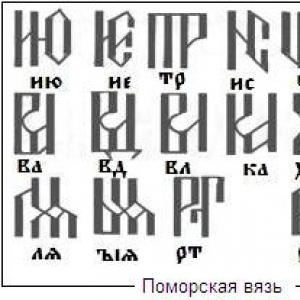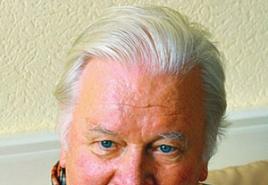Practicing the w sound in English. English tongue twisters for children. Why do those who learn English need tongue twisters?
Pronunciation is a stumbling block for all English language learners. On the one hand, sometimes philologists say that you shouldn’t worry about your pronunciation. Therefore, many happily continue to pronounce the explosive / r/, as in Russian / cancer/, / t/ instead of / θ / V path, And / v/ instead of / w/ V winter.
- About the features of Russian pronunciation English words read in our article “”, there you will find useful tips how to get rid of a Russian accent
On the other hand, listening to audiobooks narrated by Stephen Fry (and I’m sure you listen to audiobooks!), you can’t help but want to learn how to speak with his intonation and manner of pronouncing words. But native English speakers also did not immediately develop such articulation and diction. In childhood, just like us, they were forced to recite rhymes and tongue twisters in English over and over again in order to develop articulatory muscles.
Today we will also work on pronunciation using various English tongue twisters ( )! It’s not for nothing that they were called that, in English: tongue- language, twist- twist, tie in a knot. After our lesson with tongue twisters today, you will feel muscles in your mouth that you never knew existed! :-)
Peter Piper
In most cases, no one translates tongue twisters; there is no point in doing so. More precisely, the set of words of the tongue twister itself does not make much sense. These words are arranged in such a way as to train certain groups of sounds that sound very similar, but are still different. For example, / pɪ/, /pe/ /paɪ/. Therefore, do not be surprised by sentences that have strange meanings; our “Greek rode across the river” also does not make much sense.
Peter Piper picked a peck of pickled peppers;
A peck of pickled peppers Peter Piper picked;
If Peter Piper picked a peck of pickled peppers,
Where's the peck of pickled peppers Peter Piper picked?
Will you try again? Slowly at first, word by word, then faster. More good tactics- read from the end. First one word, then add the second word from the end and so on...
Interestingly, some English tongue twisters have an origin story. So, Peter Piper was a real person (real name Pierre Poivre, in French - “pepper”). He was engaged in crop production in France. In the past, spices that were also known as "peppers" ( peppers), were very expensive. At that time, the Dutch had almost a monopoly on the spice market; they imported cloves ( cloves) and nutmeg ( nutmeg) to Europe. Peter decided to grow spices himself and supply them to Europe. But it was very difficult to do this, since the cunning Dutch often marinated ( pickled) seeds ( seeds) spices with lime. The lime juice affected the spice seeds, the seeds could not germinate and people could not cultivate these plants in their country. In this way, the Dutch monopolized the market, eliminating competitors, and kept supplies low and demand high. Clever!
She sells seashells
Another very famous tongue twister in English. Here the main emphasis is on practicing sounds / ʃ / And / s/. It seems like light sounds, but when they stand next to each other, a small disaster occurs!
She sells seashells on the seashore.
The shells she sells are seashells, I’m sure.
So if she sells seashells on the seashore,
Then, I’m sure she sells seashore shells.
This tongue-twister based on life real person- Englishwoman Mary Anning (1799-1847). When Mary was a little girl, she and her father dug for sea shells ( shells) and small fossils ( fossils) on the seashore in his hometown. One day, at the age of 12, Mary found the remains of the skeleton of some animal. At first she thought it was a crocodile, but it turned out that it was a dinosaur! In her life she made many amazing discoveries and became the founder of modern paleontology. In 2010, the Royal Society included Anning in its list of women who have made significant contributions to science.
Famous tongue-twisters
I also offer you a small list of other quite popular English tongue twisters. By the way, you can also record your pronunciation and then compare whether it is very different from the original.
- Red lorry, yellow lorry, red lorry, yellow lorry.
- Seth at Sainsbury's sells thick socks.
- If Stu chews shoes, should Stu choose the shoes he chews?
- I scream, you scream, we all scream for ice cream!
- He threw three balls.
- Fresh fried fish, Fish fresh fried, Fried fish fresh, Fish fried fresh.
Do you want to know the tongue twister that holds the Guinness World Records record? Here she is! Nothing complicated? Try saying it 3 times faster!
The sixth sick sheikh’s sixth sheep’s sick. – The sixth sheep of the sixth sick sheikh is sick (it’s hard to pronounce that in Russian!).
The teacher also offers an interesting selection Alex. Here you will meet those already familiar to us Peter Piper And She sells seashells, but in a somewhat shortened form. However, Alex's teacher has American pronunciation. It's interesting to compare both options! Don't be lazy, repeat after Alex!
If you think that tongue twisters in English are very difficult to pronounce, then I advise you to watch a video about what lovers of the Chinese language have to face. This is where you can break your tongue! You will see part of the poem written in classical Chinese famous linguist Zhao Yuanren. All 92 syllables are pronounced "shi" in one of four tones. And an educated Chinese, having read this poem, will understand that we are talking about a man named Shi who ate lions.
Don't forget to download the 50 most difficult tongue twisters in English! Winter evenings Now there will be something to do! Practice, practice, practice - you won’t even notice how the complex sounds of English will begin to click like nuts!
(*.pdf, 188 Kb)
If you find an error, please highlight a piece of text and click Ctrl+Enter.
Break tongues and learn to speak correctly. Yes, this is exactly what helps in mastering the great foreign language. Tongue twisters are needed to speak quickly. Yes, that's it literally.
And if you thought, even for a minute, that such a skill was of no use to you, try singing this song:
Peter Piper picked a peck of pickled peppers.
A peck of pickled peppers Peter Piper picked
If Peter Piper picked a peck of pickled peppers
Where's the peck of pickled peppers Peter Piper picked?
How do you like it? I'm sure everything worked out for you! In fact, working on tongue twisters is a huge practice that leads to stunning results. Here, for example, we are working on the English sounds [р], [t], [k], which differ significantly from the Russian sounds [п], [т], [к]. While saying this tongue twister, imagine a dandelion in front of you that you are trying to blow away in one attempt. When you pronounce the sounds [p], [t], [k], the dandelion scatters, which means you are on the right path.
By the way, that same Peter Piper really existed. Only his surname was French Poivre, which translated means “pepper”. The Dutch, who grew spices, including peppers, supplied them to Europe, earning huge fortunes from this craft. Peter wanted to repeat the Dutch experience, but he failed. The cunning Dutch added lime juice to the spices, which did not allow the seeds to germinate, which meant that people were not able to grow them and ship them to Europe.
Well, now it’s time to listen to another tongue twister:
A slightly different version of the misadventures of Betty Botter is popular around the world:
Betty Botter bought some butter;
“But,” she said, “this butter’s bitter!”
If I put it in my batter
It will make my batter bitter.
But a bit o’ better butter
Will but make my batter better.”
Then she bought a bit o’ butter
Better than the bitter butter
Made her bitter batter better.
So 'twas better Betty Botter
Bought a bit o’ better butter.
I am sure that each of you already knows that right now you need to start training your speech, because often foreigners speak so quickly that it seems they do not understand themselves. But this is not true at all.
By the way, if it’s the 128th attempt, and you still can’t pronounce the tongue twister flawlessly, look, these English-speaking guys can’t either:
Pay attention to the following tongue twister, which trains the pronunciation of the sounds [ʃ] and [s]:
She sells seashells on the seashore.
The shells she sells are seashells, I’m sure.
So if she sells seashells on the seashore,
Then, I’m sure she sells seashore shells.
It is said that this tongue twister is associated with the name of Mary Anning, who in 2010 was included in the list of women who had a huge influence on the history of science. All thanks to Mary's love of sea shells and fossils, which she found in Lyme Regis (Dorset). Mary's famous finds even included a dinosaur skeleton.
If, instead of a tongue twister about seashells, you desperately lisp and whisper, repeat after the pacifying Alex:
Another funny tongue twister that will make not only adults, but also children smile. When working with this tongue twister, do not forget to pay attention to the sounds [θ], [f], [s], [ʃ].
Five fruit flies flew through three fields,
One fruit fly thought it’s too far,
And hopped a ride inside a car.
Four fruit flies flew through three fields,
Thirsty for free flower meals.
Three flies fought over where to fly.
One swished away to a Swiss fish fry.
Three fruit flies flew through three fields,
Thirsty for free flower meals.
One fruit fly flew far too low.
A fast frog flicked its tongue uh! oh!
Two fruit flies flew through three fields,
Thirsty for free flower meals.
One fruit fly flew far too high,
'til a sparrow swooped down from the sky.
One fruit fly flew through three fields,
Thirsty for free flower meals.
It found a flower full of food.
It slurped and slurped then burped how rude.
That fruit fly flittered far away,
But five more fruit flies flew that day.
And finally. If you are tired of English tongue twisters with tooth-breaking pronunciation, you can relax a little and sing a wonderful song about bananas. The main thing is to learn the text! Good luck!
Everyone can master the English language! There are several methods to learn a language. Each student chooses the one that suits him best. But... there are practices that are equally good for all beginners to conquer the heights of the English language. Tongue twisters in English for children are a great way to learn the intricacies of writing and pronunciation of English words for both young children and adults. Remember: do not neglect any opportunity to improve your knowledge of a foreign language. And tongue twisters are a great way to do this.
What are the benefits of tongue twisters? They are funny, exciting and fun to learn. To convey the truth to a child, you don’t need to persuade him to study for a long time. It is enough to tell a funny tongue twister to interest him, and the baby himself will want to know what will happen next. The funnier and more exciting the game, the easier and more effective the learning. Tongue twisters prove that learning can be fun!
Tongue twisters on English language– this is not only an opportunity to better study the language itself, but also a way to “tighten up” the pronunciation of problematic sounds. Most examples are designed so that one sound is repeated most often. This means that by systematically repeating the lesson, you, without noticing it, will correct the pronunciation of sounds that were previously a problem for you, and you will begin to easily pronounce the “limping” sounds a few days ago.
English tongue twisters to improve the pronunciation of the interdental sound th:
1. Whether the weather is warm, whether the weather is hot, we have to put up with the weather, whether we like it or not.
(Whether the weather is warm or the weather is hot, we have to put up with the weather whether we want it or not.)
2. Three free throws. (Three free throws.)
3. Red leather, yellow leather. (Red skin, yellow skin.)
A feature of all tongue twisters designed to improve the pronunciation of a certain sound is the abundance of the same sound in words, which is precisely problematic. Pronounce the tongue twister several times a day, and then a few more times, and after a few days - a couple more times, to record the result - and your pronunciation is clear, competent and pleasant to the sound.
A few more tongue twisters:
2. She sells seashells by the seashore. (She sells shells on the seashore . )
3. I scream, you scream, we all scream for ice cream. (I scream, you scream, we all scream for ice cream.)
More tongue twisters:
The sound sh is not to be confused with th!
The f sound is easy to learn with us!
A English tongue twisters with translation into j
| Yankee yachtsmen's yachts yaw for one yard, Yakut yachtsmen’s yachts yaw for two yards. If Yankee yachtsmen's yachts didn't yaw for one yard, Could Yakut yachtsmen’s yachts yaw for two yards? |
American yachtsmen's yachts deviate from course by one yard, The yachts of Yakut yachtsmen deviate from the course by two yards. If the yachts of American yachtsmen did not deviate one yard from the course, Would the yachts of Yakut yachtsmen deviate two yards from the course? |
| US students are younger than UK junkers, UK junkers are cuter than US students. If US students weren't younger than UK junkers, Could UK junkers be cuter than US students? |
American students are younger than British cadets, British cadets are more resourceful than American students. If American students weren't younger than British cadets, Would British Junkers be more resourceful than American students? |
10 audio tongue twisters in English for children
Listen to the tongue twisters and practice saying them as quickly as you can.
1. A big black bug bit a big black dog on his big black nose. (The big black beetle bit the big black dog on his big black nose.)
2. The blue bluebird blinks. (The blue bird blinks.)
3. Give papa a cup of proper coffee in a copper coffee cup. (Give dad a cup of good coffee in a copper coffee cup.)
4. Fresh fried fish, fresh fried fish, fried fresh fish, fresh fried fish. (Fresh fried fish, fresh fried fish, fresh fried fish, fresh fried fish.)
5. Eleven elves licked eleven little liquorice lollipops. (Eleven elves licked eleven small licorice candies.)
6. Kitty caught the kitten in the kitchen. (Kitty caught the kitten in the kitchen.)
7. Red lorry, yellow lorry. (Red truck, yellow truck.)
8. The big bug bit the little beetle, but the little beetle bit the big bug back. (The big bug bit the little bug, and the little bug bit the big bug back.)
9. Toy phone, toy phone, toy phone. (Baby phone, baby phone, baby phone,)
10. Zebras zig and zebras zag. (Zebras zig, zebras zag.)
Let's sum it up
English tongue twisters for children – the best way to learn problematic sounds and ingrain them in your memory. Most tongue twisters are easy, consisting of one or two sentences. There are more difficult ones, which consist of four or more lines. Take on the easier ones first, and gradually conquer more difficult tasks. There are tongue twisters for the weather, food, study, housework, lifestyle, etc.
Choose a topic that you like and move on to new knowledge! And what is also important is that tongue twisters should be pronounced with correct pronunciation. If you notice that your tongue is getting confused, take a break, and then go back to battle. Pronunciation must be extremely correct, because the main goal of tongue twisters is to teach children to pronounce sounds correctly. The English language is rich in similar sounds – s, th; w, v, etc. Therefore, tongue twisters are a proven way to learn how to pronounce similar sounds as needed. After completing the course, you will not be ashamed to talk to foreigners. Good luck!
Views: 1,444
Tongue twisters for practicing the sound [b]:
- The big black bug bit the big black bear, but the big black bear bit the big black bug back!
- A big black bug bit a big black dog on his big black nose!
- Busy buzzing bumble bees.
- A big black bear sat on a big black bug.
- Betty Botter bought some butter but she said the butter"s bitter.
- If I put it in my batter it will make my batter bitter.
So, she bought some better butter, better than the bitter butter and she put it in her batter and her batter was not bitter.
So "twas good that Betty Botter bought some better butter.
Tongue twisters for practicing the sound [k]:
- How can a clam cram in a clean cream can?
- How many cookies could a good cook cook if a good cook could cook cookies?
- A good cook could cook as much cookies as a good cook who could cook cookies.
Tongue twisters for practicing the sound [p]:
- Peter Piper picked a peck of pickled peppers.
A peck of pickled peppers Peter Piper picked.
If Peter Piper picked a peck of pickled peppers,
Where's the peck of pickled peppers Peter Piper picked? - Pirates Private Property
- Elizabeth's birthday is on the third Thursday of this month.
- The thirty-three thieves thought that they thrilled the throne throughout Thursday.
- There those thousand thinkers were thinking how did the other three thieves go through.
- I thought…I thought of thinking of thanking you.
- Nothing is worth thousands of deaths.
Tongue twisters for practicing sound:
- I wish you were a fish in my dish.
- I shot the city sheriff
I shot the city sheriff.
I shot the city sheriff.
Tongue twisters for practicing the sound [f]:
- There was a fisherman named Fisher who fished for some fish in a fissure.
Till a fish with a grin, pulled the fisherman in.
Now they"re fishing the fissure for Fisher. - Four furious friends fought for the phone.
- Love"s a feeling you feel when you feel you"re going to feel the feeling you"ve never felt before.
- I am not a pheasant plucker,
I'm a pheasant plucker's son
but I"ll be plucking pheasants
When the pheasant plucker's gone.
Tongue twisters for practicing the sound [d]:
- Did Doug dig Dick"s garden or did Dick dig Doug"s garden?
Tongue twisters for practicing the sound [t]:
What a terrible tongue twister,
What a terrible tongue twister...- Two tiny tigers take two taxis to town.
- I know a boy named Tate who dined with his girl at eight eight.
I"m unable to state what Tate ate at eight eight or what Tate"s tete a tete ate at eight eight. - To begin to toboggan first, buy a toboggan.
But do not buy too big a toboggan!
Too big a toboggan is too big a toboggan to buy to begin to toboggan.
Tongue twisters for practicing the sound [w]:
- I wish to wish the wish you wish to wish, but if you wish the wish the witch wishes, I won't wish the wish you wish to wish.
- While we were walking, we were watching window washers wash Washington"s windows with warm washing water.
- If two witches would watch two watches, which witch would watch which watch?
Tongue twisters for practicing the sound [tw]:
- A twister of twists once twisted a twist;
A twist that he twisted was a three-twisted twist;
If in twisting a twist one twist should untwist,
The untwisted twist would untwist the twist.
Tongue twisters for practicing the sound [m]:
- Mary Mac"s mother"s making Mary Mac marry me.
My mother"s making me marry Mary Mac.
Will I always be so Merry when Mary"s taking care of me?
Will I always be so merry when I marry Mary Mac?
Tongue twisters for practicing the sound [s]:
- When I was in Arkansas I saw a saw that could outsaw any other saw I ever saw, saw.
If you"ve got a saw that can outsaw the saw I saw saw then I"d like to see your saw saw. - Six slimy snails sailed silently.
- Singing Sammy sung songs on sinking sand.
- There once was a man who had a sister, his name was Mr. Fister. Mr. Fister's sister sold sea shells by the sea shore.
Mr. Fister didn't sell sea shells, he sold silk sheets. Mr. Fister told his sister that he sold six silk sheets to six shieks.
The sister of Mr. Fister said I sold six shells to six shieks too! - Sally sells sea shells by the sea shore. But if Sally sells sea shells by the sea shore then where are the sea shells Sally sells?
Tongue twisters for practicing the sound [i:]:
- The queen in green screamed.
- I eat eel while you peel eel.
And :
- The owner of the inside inn was inside his inside inn with his inside outside his inside inn.
Tongue twisters for practicing sound:
- What noise annoys an oyster most?
A noisy noise annoys an oyster most. - A noise annoys an oyster, but a noisy noise annoys an oyster more!
Tongue twisters for practicing the sound [ou]:
- If you notice this notice, you will notice that this notice is not worth noticing.
Tongue twisters for practicing sounds and [a:]:
- If you understand, say "understand".
If you don"t understand, say "don"t understand".
But if you understand and say "don"t understand".
How do I understand what you understand. Understand!? - Come, come,
Stay calm, stay calm,
No need for alarm,
It only hums
It doesn't harm.
Tongue twisters for practicing various sounds:
Spread it thick, say it quick!
Yellow butter, purple jelly, red jam, black bread.
Spread it thicker, say it quicker!
Yellow butter, purple jelly, red jam, black bread.
Don't eat with your mouth full!- Dr. Johnson and Mr. Johnson, after great consideration, came to the conclusion that the Indian nation beyond the Indian Ocean is back in education because the chief occupation is cultivation.
More than once in the comments we have been asked to understand the interdental th sound. This is not at all surprising: th is one of the most frequently encountered sounds in the English language, while in Russian (and in many others) this sound simply does not exist.
How to pronounce it? How to fix common mistakes? How to “train your mouth” to pronounce correctly? Today we will answer these questions using videos, exercises, tongue twisters, words and examples from songs.
What sound do the letters th make?
Just let’s make it clear right away that th is not a sound. This is a combination of letters that can be read as two sounds: unvoiced /θ/, as in the word thanks, and voiced /ð/, as in the word that. It is with these signs that the interdental “th sounds” are indicated in transcription. But in the article I will sometimes write “th sound” for convenience.
Both sounds, voiced and voiceless, are articulated in the same way(lips and tongue are in the same position). Therefore, we will structure the work as follows:
- First, let's learn the correct mouth position for both sounds;
- Then we will analyze possible errors and find out how to correct them;
- Then we will work on tongue twisters and words, each sound separately.
Yes, we don't have these sounds. But we have the concept of “lisp.” Do you remember Sid the sloth from Ice Age: “No, I f whether f com young, f to die!”. In English explanatory dictionary the word “lisp” (lisp) is interpreted as “a speech defect in which s and z sound like th in think And this respectively".
This video talks about lisps. I recommend watching: simple and humorous.
That is, it turns out that we need to pronounce Russian / s / with a lisp for the deaf / θ / and Russian / z / for the voiced / ð /. What do you mean, “lisp”? Say the word right now "compound". When pronouncing the /c/ sound, your tongue is BEHIND your teeth. Now put your tongue between teeth(th sound - interdental) and say again "compound". You will end up with something like a deaf th, as in the word thick.
Now do the same, but with the word "gap". As a result, you will get something like a voiced th, as in the word then.
Why do I say “similarity”? Because Russians are /s – z/ /s – z/, which means their lisp will be slightly different. Therefore, let’s take a closer look at the position of the articulatory apparatus.
How to pronounce th sound in English
Language spread out and tense, and its tip is located between the upper and lower teeth, forming a narrow flat gap between cutting edge of the upper teeth and the surface of the anterior edge of the tongue.

To learn the ideal positioning of the articulatory apparatus, I suggest you watch the video. It shows three life hacks:
2:08 – how to put the articulatory apparatus in the ideal position: open your mouth, place your tongue on top of your lower teeth so that the tip is directly behind the lower lip and slowly lower your upper teeth onto your tongue – try to pronounce the voiceless version of th, as in think.
2:52 - how to feel the necessary tension on the tongue: take a straw and place it between the tongue and the upper teeth - this way you will feel how strong the tension should be on the tongue.
3:36 – how far to stick your tongue forward: place your finger perpendicular to your lips (as when we ask you to be quieter) and stick your tongue out. The tongue should lightly touch the finger - this is the limit.
And don’t forget to repeat sentences and words after the presenter! This sound takes practice and more practice.
Pronunciation of the interdental sound th: video.
How to pronounce th sound in Russian
Now that you have figured out what position the articulatory apparatus should be in, let’s laugh together at the typical mistakes of Russian speakers in order to avoid them in practice (which, by the way, will come immediately after this point).
| Possible mistakes: | How to fix: |
| Replacing voiceless /θ/ with /s/ ( think pronounce “sync”);
Replacing voiced /ð/ with /z/ ( then pronounce it like "zen"). |
Do not arch the front back of your tongue upward. + The tip of the tongue should be between the teeth, and not at the base of the lower front teeth (and not at the alveoli,). Do exercises on contrasting words, for example: mouth /maʊθ/ – mouse /maʊs/, thing /θɪŋ/ – sing /sɪŋ/, with /wɪð/ – whizz /wɪz/. |
| Replacing voiceless /θ/ with /f/ ( three pronounce it like “fries”);
Replacing voiced /ð/ with /v/ ( breathe pronounce it like “briv”). |
Expose your teeth, especially the lower ones, as when brushing them, so that the lower lip does not come into contact with the upper teeth or come close to them. Report contrasting pairs: three /θriː/ – free /friː/, thought /θɔːt/ – fought /fɔːt/. |
| Replacing voiceless /θ/ with /t/ ( thick pronounce it like "teak");
Replacing voiced /ð/ with /d/ ( this pronounce it like “dis”). |
Do not press the front part of your tongue against upper teeth: it is lowered down, and the tip is between the teeth. Do exercises on contrasting words, for example: thick /θɪk/ – tick /tɪk/. |
| Deafening of the voiced version th / ð / ⇒ replacement with the voiceless version / θ / at the end of the word. It can happen out of habit, because in Russian, voiced consonants at the end of a word are pronounced dull. |
Remember that in English, voiced sounds at the end of a word are not deafened! Do exercises on contrasting words, for example: teeth /tiːθ/ – teethe /tiːð/. |
See, it's not all that complicated. 🙂 It’s quite possible to figure out exactly how this sound should be pronounced. Moreover, the Internet is full of educational videos on this topic (for example, watch, from which you will learn how to correctly pronounce th sounds in combination with other sounds).
What's the catch then? Why does this sound still cause difficulty? Because to accustom ourselves to pronounce it correctly when speaking quickly and spontaneously is a real feat for us. The solution is special exercises and a lot of practice.
Practicing the th sound in English: exercises and training
First tip: first, to make this “interdental position” more familiar to your tongue, deliberately exaggerate it! Stick your tongue out as far as possible, pronounce it in a very exaggerated manner, don’t be shy about looking stupid. More details in the video:
Another exercise that will help you get used to it: hum absolutely any melody (for example, “A Christmas tree was born in the forest”), replacing all the words with the sounds / θ / and / ð /.
A Christmas tree was born in the forest, it grew in the forest, it was slender green in winter and summer.
Thethethethethethethe,thethethethethe,thethethethethethethethethethethethethe.
Now that you are used to it, move on to practicing in words and tongue twisters.
English words with th sound: voiceless version
So, we adjust our mouth to the desired position and begin phonetic exercises for the sound th. Remember that this sound does not need to be softened before front vowels (such as i). The sound /θ/ is always only hard.
thought /θɔːt/
thrust /θrʌst/
through /θruː/
strength /strŋθ/
thrall /θrɔːl/
fourth /fɔːθ/
Great! Now you can try it on tongue twisters.
Tongue twisters in English with the sound th
- Th irty- th ree th ousand and th irty th inkers th ought th irty- th ree th ousand and th irty th oughts.
- Th ree th erapists th rew th ree th ermometers in th ree th ick th ickets of th orny th istle.
- I am th ankful for a th ousand th ings...for fai th full ear th, for bir th and brea th, for th thought and heal th and strength th and world th, and, may be, when it comes, for dea th.
To conclude our training, as usual, we will take an example from a famous song with the sound th. I settled on the song “Under My Thumb” by The Rolling Stones. Word thumb repeated throughout the song with a distinct pronunciation of the /θ/ sound.
Words with th sound in English: voiced version
Now we move on to the voiced sound /ð/. Again, I draw your attention to the fact that this sound is always hard and does not soften in front of the front vowels.
loathe /ləʊð/
breathe /briːð/
other /ˈʌð.ə r/
there /ðeər/
whether /ˈweð.ər/
mother /ˈmʌð.ə r/
father /ˈfɑː.ðər/
brother /ˈbrʌð.ə r/
neither /ˈniː.ðər/
worthy /ˈwɜː.ði/
leather /ˈleð.ər/
together /təˈɡeð.ər/
another /əˈnʌð.ər/
English tongue twisters with th sound
- Th ese bro th ersba th e wi th th ose bro th ers, th ose bro th ersba th e wi th th ese bro th ers.
- Th ey are always bo th Faering th er and Mo th er to do things for th em.
- Th ese clo th es are ra th er for th e southern wea th er, th ose clo th es are ra th er for th e northern wea th er.
By the way, I highly recommend learning another tongue twister. More precisely, these are many different tongue twisters in unvoiced and voiced th, which are set to music. Learn this song, and your articulatory apparatus will never forget the correct position. 🙂
And now an example from the song. For ringing th, I settled on the song “One Way Or Another” by Blondie. Word another repeated throughout the song and clearly articulated.
Results: reading th sounds in English
As you can see, there is nothing too scary about the th sound. The main thing is practice. You can save our article to bookmarks and periodically practice th sounds training over and over again. And so that nothing gets confused in your head, I propose to briefly summarize:
- The letter combination th gives 2 sounds: unvoiced / θ /, as in thanks, and voiced /ð/, as in that. Remember these icons: if you come across a new word, then turn to the dictionary to find out the transcription and hear the pronunciation.
- This sound is pronounced as a lisp / s / and / z / - the tongue is spread out and tense, the tip is located between the upper and lower teeth, forming a narrow flat gap between the cutting edge of the upper teeth and the surface of the anterior edge of the tongue.
- The main difficulty for us is to accustom our articulatory apparatus to this sound. Especially to pronounce it correctly during fast, fluent speech. Therefore, be sure to do some training for yourself: hum songs, practice sets of words and tongue twisters.
Don't switch: to be continued
We calculated that we had 24 sounds left to make out. Therefore, after today’s training, there are 22 left. Next time we will take on a new portion of sounds, this time – vowels. See you again! 🙂







